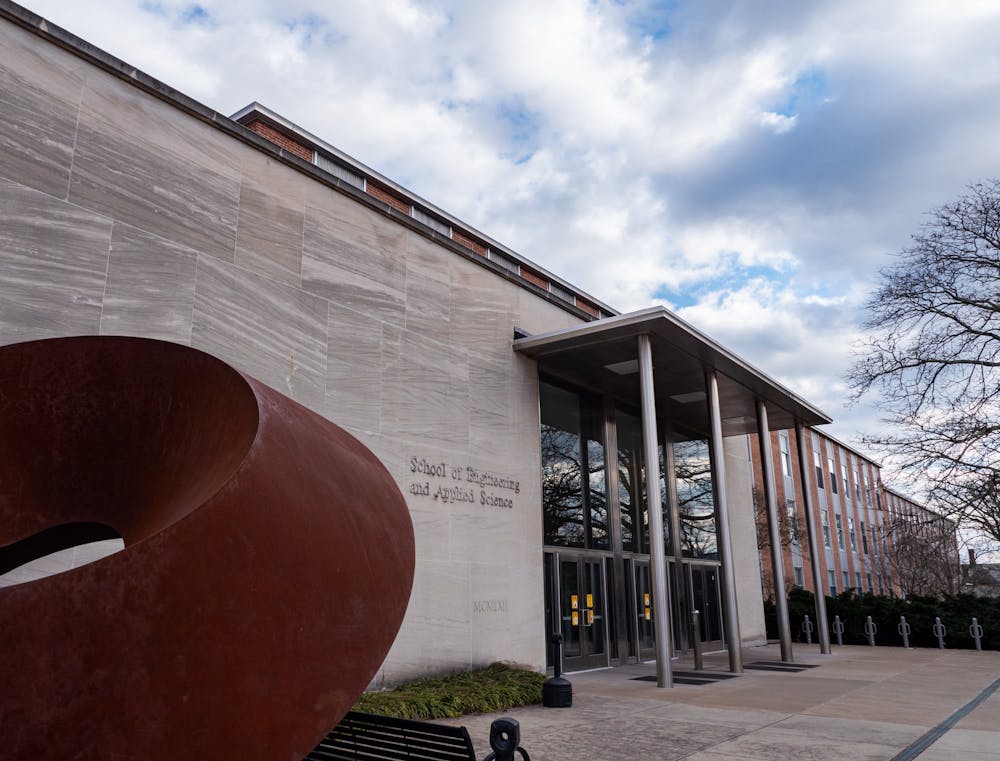Supported by National Science Foundation (NSF) funding, a new innovation hub led by the University will aim to accelerate entrepreneurship, scientific research, and socioeconomic impact.
On Aug. 25, the NSF announced the establishment of its Innovation Corps (I-Corps) Northeast Hub, one of five new federally funded hubs. Each hub will be allocated $3 million per year for five years and will expand by adding new affiliates each year.
The University will lead the Northeast Hub in collaboration with the University of Delaware and Rutgers University. Five other institutions — New Jersey Institute of Technology (NJIT), Rowan University, Lehigh University, Temple University, and Delaware State University — are also affiliated with the project.
Dean for Research and Professor of Chemical and Biological engineering Pablo Debenedetti will be guiding the overall governance of the hub. Rodney Priestley, Princeton University’s Vice Dean for Innovation and a Professor of Chemical and Biological engineering, will be the Co-Director of the hub alongside Julius Korley, Director of Entrepreneurship and Strategic Partnerships in the College of Engineering at the University of Delaware.
“The idea is to accelerate the economic impact of federally funded research so it provides a structure for bringing research to the market,” Debenedetti explained in an interview with The Daily Princetonian. “And the other important thing is our commitment to do so in an inclusive way that reaches out to communities that have been traditionally underrepresented in entrepreneurship.”
Priestly emphasized the hub’s focus on helping identify pathways towards the commercialization of academic research and laboratory discoveries via the formation of startups and new ventures.
“At Princeton, we strongly believe scholarship can have an impact, especially the scholarship around science and technology that we are involved in to solve the world's pressing problems,” Priestly said. “But even if we do great research here on campus, what is to the benefit of humanity if we do not create avenues by which we can translate that research?”
Another key focus of the hub is to support greater diversity in entrepreneurship through acknowledging groups that have been historically underrepresented in the field and providing them with the necessary resources and mentorship network to succeed.

“We are committed to recruiting mentoring teams that reflect the diversity of the country, and we are committed to reaching out to faculty that belong to traditionally underrepresented minorities,” Debenedetti said.
Priestly added that by working in partnership with Delaware State University, a historically Black college or university (HBCU), the University aims to reach out to other HBCUs and bring in more affiliate institutions focused on minority-serving populations.
The hub aims to have far-reaching impacts for citizens not only of the northeast region, but also of the nation due to its capacity to invigorate research and innovation across a variety of sectors.
According to the Office of the Dean of Research, the hub will make use of its proximity to “deep-tech industries” and will aim to accelerate discoveries in health care and pharmaceuticals, energy, the environment, earth- and water-friendly “green and blue” technologies, financial technologies, agriculture, communications, and digital information.

Rep. Bonnie Watson Coleman (D-N.J.), further emphasized the hub’s impact, stating in the University’s release that it “will invigorate the capacity for federally funded research to improve people’s everyday lives.”
Diya Kraybill is a staff writer who often covers student groups and university affairs. She can be reached at diyak@princeton.edu. Ashley Fan is an assistant news editor. She can be reached at ayfan@princeton.edu.








